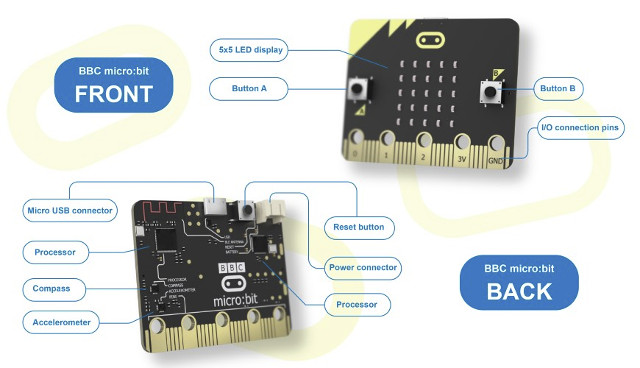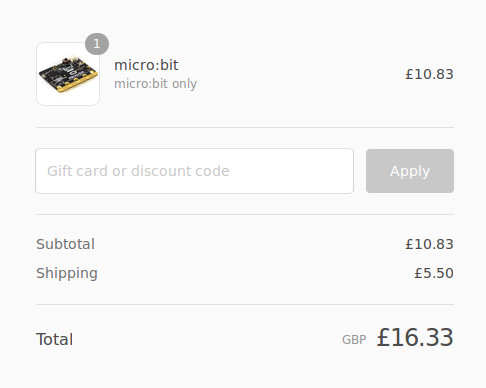BBC recently distributed micro:bit boards to UK schools to get student interested in electronics and help them learn more about this subject, but so far it was not for sale to the general public, but this has now changed since the British broadcaster now launched the board for 13 GBP (~$19) via Element14/Farnell and others distributors.
 The board is powered by Nordi Semi nRF51822 SoC with ARM Cortex M0 micro-controller and Bluetooth LE connectivity, features motion sensors, plenty of LEDS, a few buttons, a micro USB connector for power & programming, as well as a header for LiPo batteries. There are various ways to program the board either interpreted languages such as Python or JavScript, or graphical drag and drop programs such as Microsoft Block Editor. All technical details and example projects available on Micro:bit official website.
The board is powered by Nordi Semi nRF51822 SoC with ARM Cortex M0 micro-controller and Bluetooth LE connectivity, features motion sensors, plenty of LEDS, a few buttons, a micro USB connector for power & programming, as well as a header for LiPo batteries. There are various ways to program the board either interpreted languages such as Python or JavScript, or graphical drag and drop programs such as Microsoft Block Editor. All technical details and example projects available on Micro:bit official website.
Beside the board only, several kits are being offered included micro:bit Go with a USB cable, battery holder & 2x AAA batteries, and a Quick Start Guide, micro:bit Club with 10 “Go” kits, and each reseller seems to have its own kits.
Element14 only accept orders over 90 units, so if you just want to play around and pre-order one or two, you’ll have to go through smaller UK distributors such as Kitronic, Pimoroni, or Technology Will Save Us that also sell the board for 13 GBP ($19), and kits for up to 37.50 GBP ($54).

Even though there are only British resellers, you can buy the board from anywhere in the world. For example, micro:bit will sale for 16.33 GBP ($23.70) shipped to Asia on Pimoroni. Shipping is scheduled for July.
Thanks to Zoobab for the tip.

Jean-Luc started CNX Software in 2010 as a part-time endeavor, before quitting his job as a software engineering manager, and starting to write daily news, and reviews full time later in 2011.
Support CNX Software! Donate via cryptocurrencies, become a Patron on Patreon, or purchase goods on Amazon or Aliexpress




